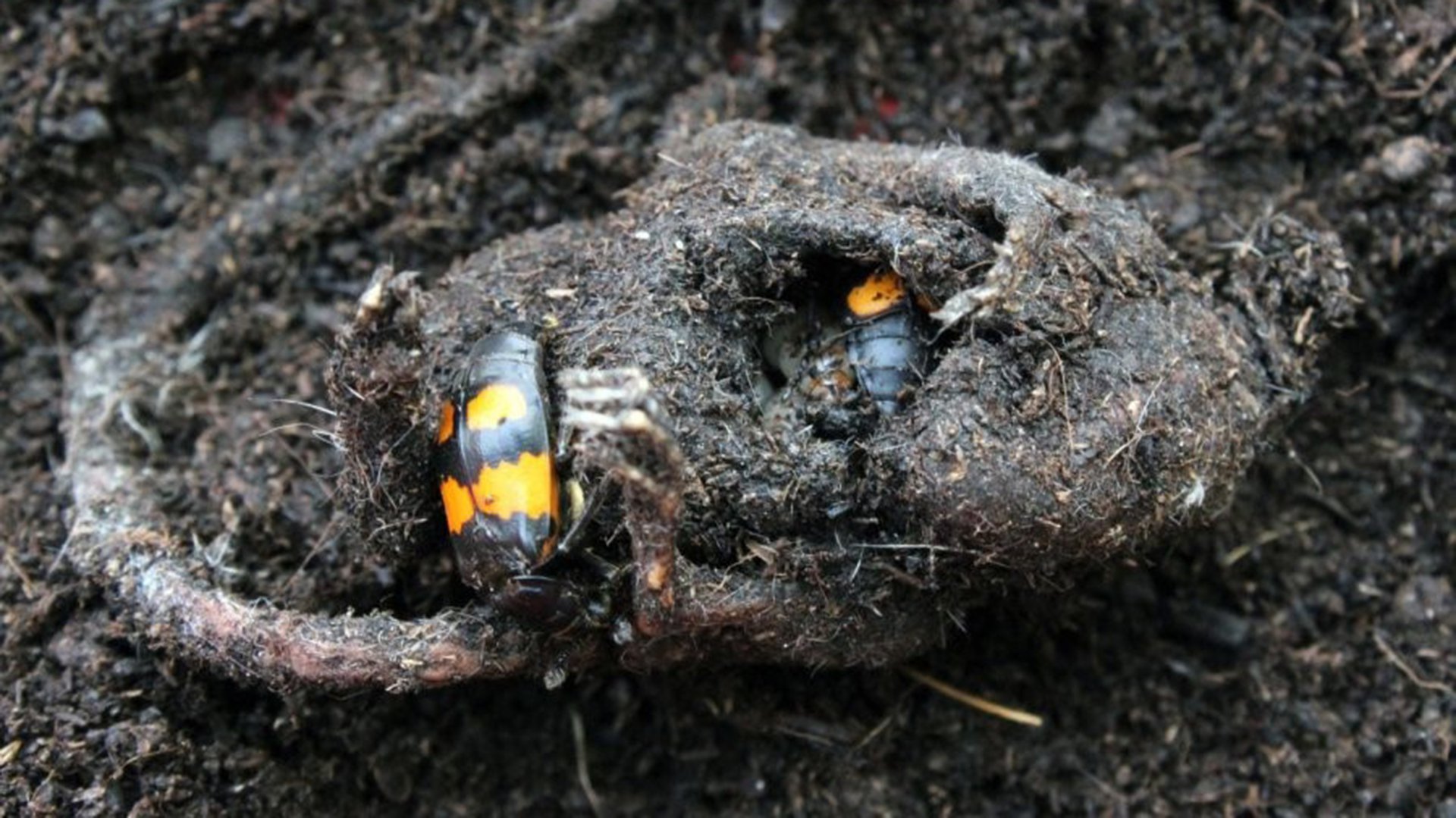Nursery
The burying beetle Nicrophorus vespilloides buries the carcasses of small animals in the ground to use as a food source for its offspring. However, this ‘nursery’ is highly susceptible to microbial rot . In addition to the pathogens that develop in the carcass, the toxic substances released during the decomposition process are harmful to the beetle larvae. German researchers have now discovered the burying beetles’ solution to this problem: covering the corpse with their own intestinal microbes. This not only prevents the (harmful) breakdown of the dead animal, but transforms the carcass into a breeding ground of benign bacteria and fungi that promote the larvae’s growth.
Significantly smaller
The researchers examined the bacterial and fungal profile of carcasses that were used by the burying beetles, and compared this diversity to that of other carcasses. In doing so, they found that normal corpses contained numerous soil fungi that broke down the animal tissue. These fungi were suppressed in the carcasses with beetle larvae, and a specific intestinal yeast from the burying beetles was primarily identified. The researchers also studied how these microbial changes in the carrion affect the health of the beetle larvae. Larvae that grew in carcasses without the beetle microbes were significantly smaller, despite that fact they that had eaten just as much of the animal tissue.
Antibiotics
This process not only shows that insects – like humans – need their microbes in order to stay healthy, but also demonstrates that they use these microbes to take control of a challenging environment. In addition, the newly discovered beetle microbes may be useful for medical applications. Because these beetle microbes inhibit the growth of pathogenic and toxin-producing bacteria and fungi, they could potentially serve as a source of antibiotics and antifungicides.

